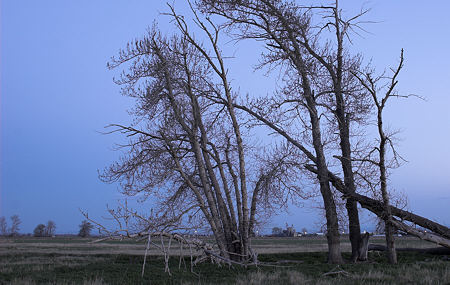
In my scattered reading, I came across a Wallace Stevens poem that seems to speak to the recent discussion on essence.
On the Road Home
It was when I said,
“There is no such thing as the truth,”
That the grapes seemed fatter.
The fox ran out of his hole.You. . . You said,
“There are many truths,
But they are not parts of a truth.”
Then the tree, at night, began to change,Smoking through green and smoking blue.
We were two figures in a wood.
We said we stood alone.It was when I said,
“Words are not forms of a single word.
In the sum of the parts, there are only the parts. \
The world must be measured by eye”;It was when you said,
“The idols have seen lots of poverty,
Snakes and gold and lice,
But not the truth”;It was at that time, that the silence was largest \
And longest, the night was roundest,
The fragments of the autumn warmest,
Closest and strongest.-Wallace Stevens
Which in turn reminds me of Pessoa’s thoughts on the mystery of things:
There! That’s what my senses learned unaided:—
Things have no meaning: they have being.
Things are the only hidden meaning of things.-Fernando Pessoa
Eliminating any pretensions to the truth or the essence should be liberating; it dramatically lowers the bar for a work to have worth.

Liberating, perhaps, Steve, because no one has a patent on Truth; it’s widely available, in Things.
But it doesn’t lower the bar — just widens the scope.
Trees at twilight, smoking through green, smoking through blue….
We continue to enlarge our sense of place — the eyes have a set of truths, the intellect another, the narratives a whole set of its own, the nature of the air and wind and snow something else again. All scrummed into that Bag of Place.
And here’s another quote you will appreciate from Rilke”
The
Duino Elegies — about the difference between angels and people, and the
meaning of death, and his idea that human beings are put on earth in
order to experience the beauty of ordinary things.
In the Ninth Elegy, Rilke wrote “Maybe we’re here only to say: house, /
bridge, well, gate, jug, olive tree, window — / at most, pillar,
tower… but to say them, remember, / oh, to say them in a way that the
things themselves / never dreamed of existing so intensely.”
To go a step further, if we are Rilke, we have the capacity to appreciate beauty, if you are Nietzsche, you transmute rejected love into a new brand of philosophy, if you are Christian, Moslem or Jewish, some of your thinking is structured by your religious authorities.
To me, it seems that everyone has their own truth, an individual truth which may consist of believing that there is no single truth. A view of the world shaped by a delicious mixture comprising our ancient biology, evolving spirit with a verneer of culture.
I haven’t read Rilke in years, but I guess it’s time to dust that off. Looking forward to new delights, but wondering when I’ll next read a book cover to cover…
Stevens, Pessoa, Rilke–all my favs (except for Hawthorne)
The irony of the Stevens’ poem is that even though truth is relative and non-absolute, it sill has the power to influence the objective world (notice how the “trees change” with a new truth-view) Paradoxically, subjective truth is more powerful than objective. I think most people would figure it was the other way around.
Oh–Steve–since you’re interested in both “cataracts” (thanks to Jay for reviving this delightful old usage in a earlier comment!) and ways of seeing, you might be interested in this Hawthorne sketch:
About his visit to Niagara Falls…its all about how expectation and previous recountings of the Falls color his perception of it…and how he fights to experience it in his own way, undiluted by the experiences of others. It illustrates how iconic subjects and the artists before us become stys in our vision. It’s well worth reading for the last lines alone!
http://www.eldritchpress.org/nh/niagara.html
Sorry, here’s the URL
McFawn,
Subjective truth is more powerful. Why else would the US have soldiers in Iraq?
McFawn,
The Hawthorne piece is delightful. The most amazing thing to me is the concept of dedicating several days to seeing the Falls. What leisure and luxury! And how different from the usual traveler’s pace.
I like your formulation of subjective truth more powerful than objective, and it does seem right in a way. But I find myself resisting a bit, so I want to think about this further.
Steve et al:
Somehow the backstroke seems most conducive to thought as the ceiling slides all too slowly by. And I often think about a feeling that I, as one, am but a swizzle stick dropped into a vat of possibilities, thereupon to gather crystals of experience. As such I will then help stir some fifth-dimensional margarita.